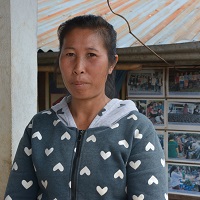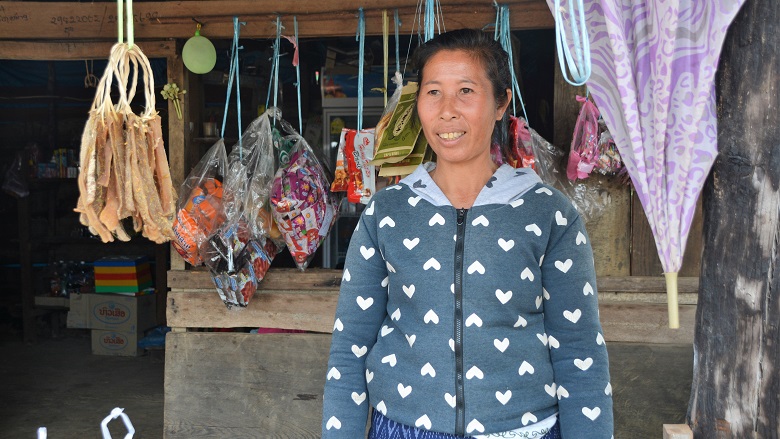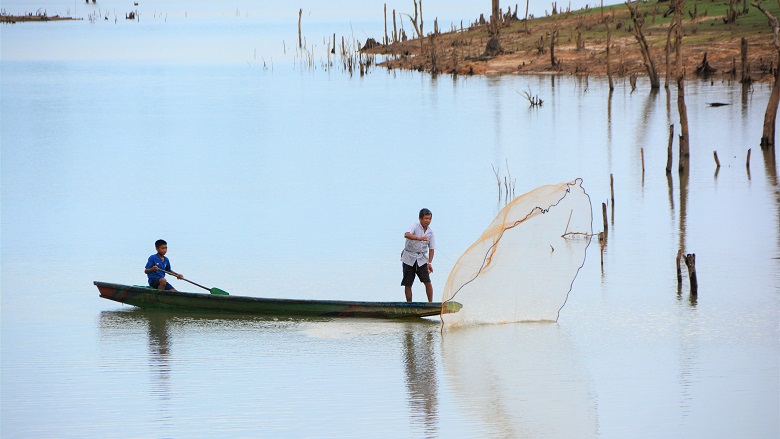At 7am, the fish market at Thalang village is already buzzing with merchants trying to negotiate prices with fishers unloading their catches from boats or weighing their fish on a scale. Ms. Khaikham Sayavongsa is busy supervising several women, one taking notes while the other collects money from the merchants. An hour later, the crowd starts to dissolve – boats retreat, merchants depart with fresh fish on ice, and Khaikham and her staff carry some fish up to her shop. She then prepares a fireplace to smoke the fish, which is being rapidly cut into fillets. This is Khaikham’s typical morning routine.
Thalang village borders the Nam Theun 2 reservoir and hosts the district’s main fish market. Most people in the village depend on fishing for a living. Khaikham is relatively new to the fish business, but now serves as Head of the Fishery Group in her village. She and her family moved to Thalang in 2008, to make way for the Nam Theun 2 hydropower project. When she first arrived, she faced challenges in adapting to the new environment and way of life. In her old village, she depended mainly on farming and finding food in the forest, so it was a big change to live in a town further away from the forest, with smaller farmlands.
“I was worried when we were consulted about moving to a new village because I didn’t know what it would be like. When we first arrived, we were concerned about the size of the land, and whether it would be enough for our family to continue farming for a living. It was difficult at first, because we were all used to one way of life. Over time, we received support from the project and the district to help us adapt. They tried to encourage us and continued to follow up with us. They didn’t let us down.”




